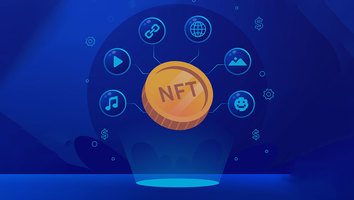The FinTech sector has been completely transformed by blockchain technology. Even though this technology is still in its development stage and has the potential to utilize many services, the fintech sector can modernize its outdated methods to automate the financial system without impacting the transactional model. This rationalizes why various fintech professionals are preferring to choose high-quality blockchain development services.
According to a Market Research Future estimate, by 2023, the global blockchain in the fintech market would be worth USD 6700.63 million, with a CAGR of 75.2%. This will completely capture and revolutionize the corporate landscape.
Here are some of the ways that blockchain technology will transform the FinTech sector
-
Stronger Security
Being decentralized, blockchain technology prevents anyone from accessing and changing the blocks. Every single transaction is stored on a special node that is impenetrable at all times. This greatly enhances the security of every record.
Only when a person owns more than 50% of the nodes in a chain is there a probability of hacking, although such a situation is improbable. As more and more fintech businesses will adopt blockchain development services. in the future, it will be nearly impossible to perform any fraudulent activities on transactions. -
Digital Ledger Creation
Transactions are recorded on papers that are time-stamped and annotated in a physical ledger. This is in the same way transactions are recorded in blockchain technology. It can digitally track every stage of the transaction process, time-stamp them, and keep a chronological record of them. The banking and accounting industries depend on having a precise and accurate record of every transaction. Blockchain application development technology will dramatically increase process efficiency and lower the possibility of aberrations by documenting transactions automatically. -
Shifting Monetary Power To The People
Blockchain technology is widely used in cryptocurrencies, which holds the value of your money in digital coins, that too, without a bank. With this technology, you will be able to keep your cryptocurrency holdings in a digital wallet using a private key that is only known to you if you have invested in cryptocurrencies. Your money will be held exclusively by this financial institution.
-
Mitigated Costs
By using smart connections within a platform, banks can minimize interactions with counterparties and intermediaries. They can also lower the expense of managing and carrying out contracts. Using blockchain development services, banks can also reduce the cost of interbank transactions.
-
Faster Transactions
Any transaction may be completed using blockchain in a matter of seconds, which is a little quicker than with conventional methods. Banks can now guarantee that customers complete transactions more quickly by forgoing the use of middlemen. This will enable both customers and banks to finish and process more transactions.
-
More Consistency
Auditors and government representatives can receive access to the blockchain from banks. With this access, auditors and the government can observe how business is conducted in real time. Additionally, banks can spot shady transaction activity and speed up the auditing procedure.
The Bottom Line
Blockchain can adapt to new developments in the financial services industry. This revolutionary technology has the power to inspire innovative fintech concepts and alter the financial landscape. The top blockchain development company is competing to use blockchain to change the financial landscape with the help of its skilled and experienced workforce.



